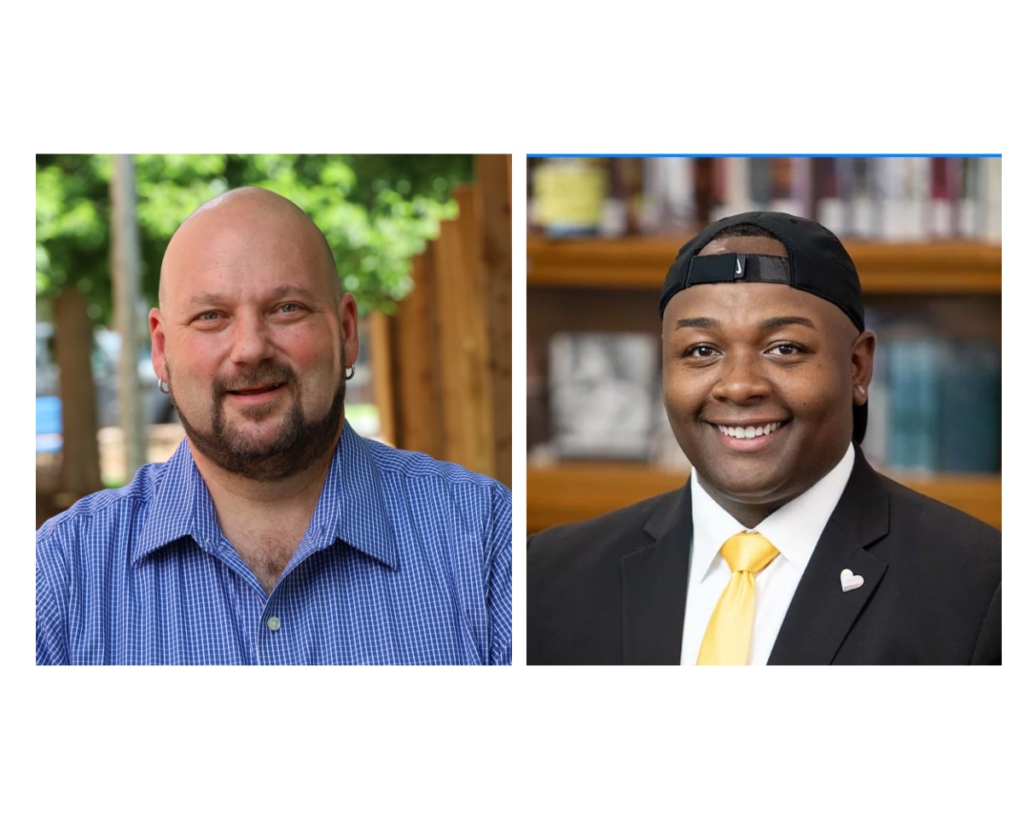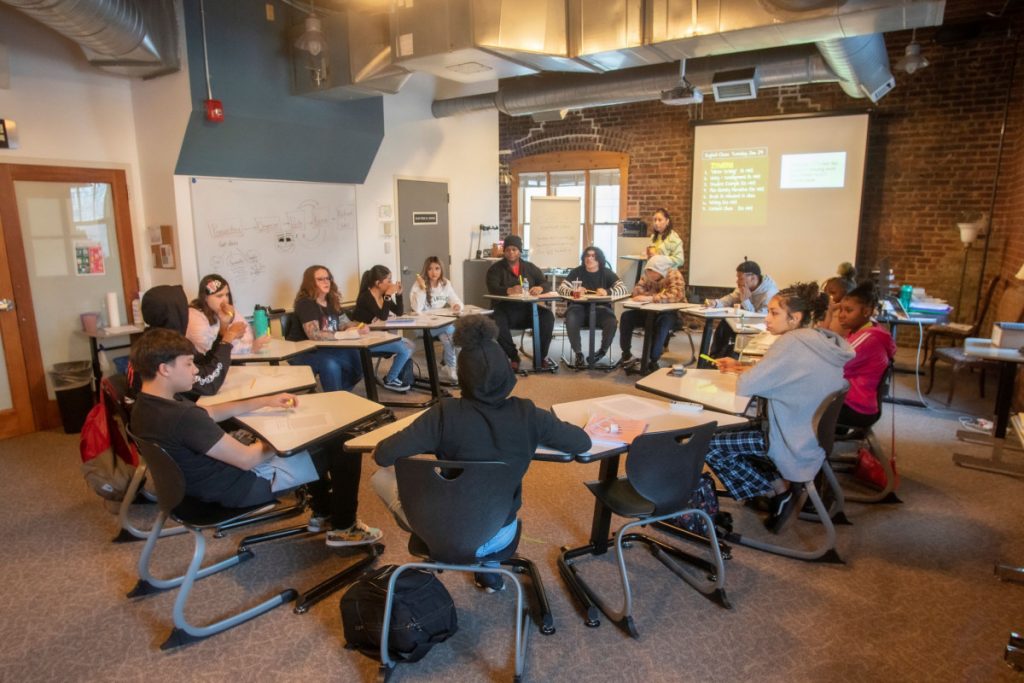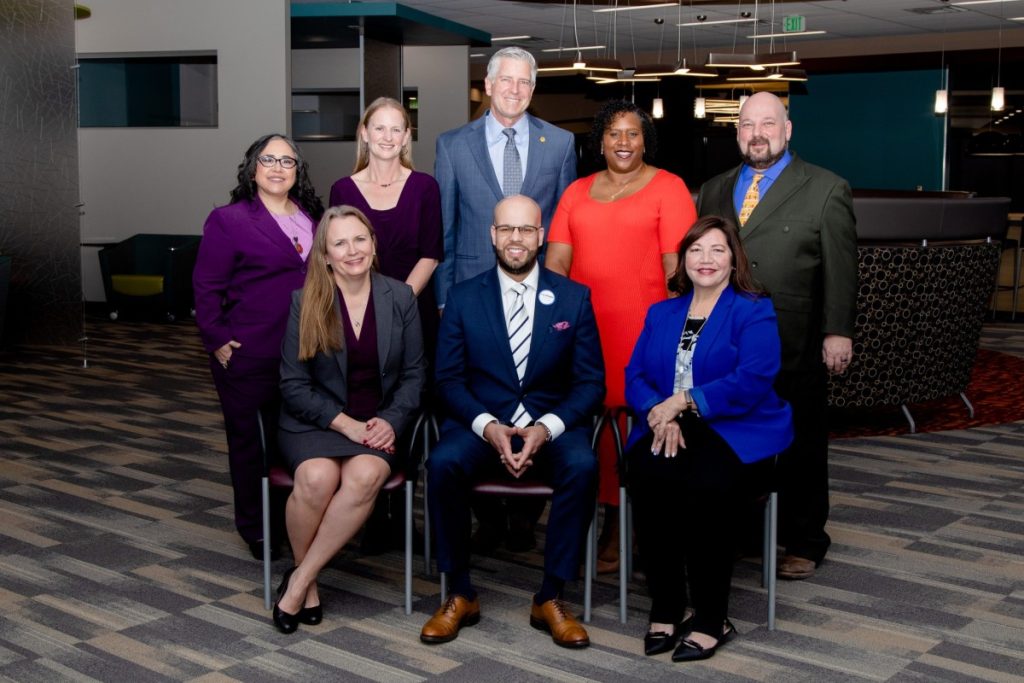Beyond a doubt Denver Public Schools has mishandled the school closure issue over the past few weeks. From a community perspective, the announcement seemed abrupt and out of the blue, even though planning had been in the works for several months.
No one doubts that district enrollment is declining and that some schools are severely under-enrolled and therefore over-subsidized. Yet most people were predictably incensed over the proposal to close/consolidate/reunify 10 schools.
That is now down to five schools, as of Thursday afternoon. Not because the district can make finances work if only five schools close, but because the 10-school proposal was almost certain to be voted down by the school board. The other five schools should not breathe easy: their day is likely coming soon.
But it’s not clear that even the five-school proposal will fly. We will see where board members land after what could be a 12-hour public comment session Monday night into Tuesday morning.
Everyone is pointing fingers, mostly at Superintendent Alex Marrero and his senior leadership team. And while there’s plenty of blame to go around, much of it rests squarely on the shoulders of the school board, not Marrero.
Some board members are backpedaling as fast as possible from the understandably unpopular recommendation to close schools. But if their concern is so great, they could and should have intervened sooner.
Yes, Marrero bears some responsibility as well, failing to lay the groundwork with a fully transparent process. He and his team could have met with each impacted school community and run through the numbers in detail.
That wouldn’t have won their support, but it would have kept people from feeling blindsided by what felt like to them a fast-track decision.
Board members have known for months that closure recommendations were coming, and that they would be unpopular. It was even clear which schools were likely to be targeted: Those with enrollment so low that they have to be heavily subsidized by the district to keep even minimal programming up and running.
At any point board members could have suggested to Marrero an earlier and more deliberate roll-out. Yet they sat back and waited for the list to become public. They will say their hands were tied by Policy Governance, which requires them to take a hands-off approach to operational issues.
That would ring truer if some of them weren’t jumping in with both feet now.
The two citywide board members, Auon’tai Anderson and Scott Esserman, have seized upon the foreseeable outcry from affected communities to position themselves as their champions, battling side-by-side with parents against the big, bad, racist district. They mobilized people against the closures, and said they would lead the charge to rescind the resolution authorizing them.
That was disingenuous at best.
At a community meeting I attended last week, Esserman said DPS needs to go back to the drawing board and restart a process that this time should be “community led and district supported.”
That’s a noble sounding aim, and drew a lot of applause, but in this context, it’s impractical and naive (or perhaps cynical).
Why?
First and foremost because when it comes to school closures, there is no single ‘community,’ and different geographical constituencies are naturally going to advocate on behalf of their own self-interest. People in School A will present arguments for keeping it open, even if that means School B is more likely to close.
Conceivably, Schools A and B might band together for mutual self-preservation, but when the going gets tough and choices have to be made, School A advocates will fight for their school above others. At the community meeting, Essserman and Anderson urged school communities to make common cause and fight the power, but unless the district backs all the way down, those alliances will only hold together for so long.
Historically, and not just in Denver, no school district action has been more destined to create controversy and division than school closure. No matter how well researched and reasonable the proposal, there has always been vociferous, grassroots outrage and opposition. No one wants their neighborhood school shuttered.
As a knowledgeable friend who has studied these issues closely told me: “School closure by its very nature has many enemies and few if any friends. It directly harms individuals (families and staff) and disperses the benefits broadly and over time.” For this reason, it requires political courage to look people in the eye and tell them that the good of public education in Denver requires sacrifices.
It’s unfortunate and unacceptable that, as Anderson pointed out, time and again the pain is inflicted on low-income communities of color. It would take hard work and significant political courage to distribute the pain more equitably by closing some schools filled with more affluent students. DPS should find a way to do that.
A few influential community gadflies with big social media followings insist the district could keep all schools open and offer a full array of academics and enrichment everywhere by slashing central office staff. Even if the central office suffers from bloat, gutting it to the extent some are urging would be impractical and would not result in sufficient savings to make under-enrolled schools financially healthy.
Other so-called “anti-reformers” blame the entire situation on the growth of charter schools. That’s a topic for a future column, but it’s wrong-headed. Inner-city parents choosing charter schools are not the problem. When did stripping low-income parents of choice become a progressive policy? It’s paternalistic and condescending.
Long-term demographic trends mean that some schools need to close. That number is certainly more than five and, I’m told by people in the know, probably even more than 10.
The bottom line is that keeping under-enrolled schools open is expensive. A budget document from a year ago someone sent me showed that Denver Discovery School, on the list of five still recommended for closure, received $22,045 per pupil during the 2021-22 school year. Enrollment dropped further this year, meaning that subsidy has only grown.
That’s double the amount many schools with healthy enrollment received. This is neither fair, equitable, nor sustainable.
And low-enrollment schools can’t offer everything parents want schools to provide for their children – strong art and music programs and other electives, in many cases.
True political leadership means occasionally making unpopular decisions. School board members should demonstrate political courage and tell Denver parents the truth. Some schools need to close by the end of the current school year.
If they want to develop a new and different process than the one Marrero used, by all means, they should propose one. But there’s no time to lose. Delaying will only create bigger budget gaps and massive political headaches a short way down the road.




